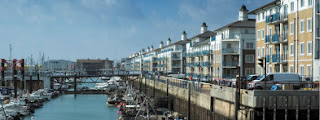As I’m sure you’re aware, for a lot of people, mortgages take up a big chunk of monthly bills. For the majority, family housing expenses occupy for than a quarter of their budget, so clearly saving money on your mortgage can only be a good thing.
Luckily, there are some actions that you can take to save money in this section of your family’s budget. Initially, double check the terms of your mortgage. It’s possible that you could qualify to refinance your mortgage at a lower interest rates, in the process saving hundreds a month.Afterwards, review the mortgage note’s total payment term. You have to pay a greater amount of interest in the case of a longer payment term with smaller monthly payments. Discuss and make the decision of whether or not saving monthly is a priority over saving money in the long term. Often families will choose a longer payment scheme so that more money is available on a monthly basis. Unless getting out of debt as quickly as possible is the goal, then a shorter mortgage note is often selected. Consider refinancing into a note with a longer or shorter term based on your decision. This can save you either hundreds every month, of thousands over the total length of the loan.
If you don’t think refinancing is the choice for you, there are still alternative ways to save. Look at how much monthly you are expected to pay into escrow. Often mortgage companies will overestimate expenses such as insurance and property taxes. Enquire about the possibility of an evaluation of the costs, which may then result in more monthly savings.
Research is key in saving money on your mortgage, but it is possible. So tread carefully and keep informed to maximise your chances of saving successfully.
If you have any further enquiries, are interested in overseas mortgages or would like to take aout a mortgage abroad, get in touch with Conti - Mortages Overseas weither by exploring our website www.mortgagesoverseas.com or via telephone 08009700985




